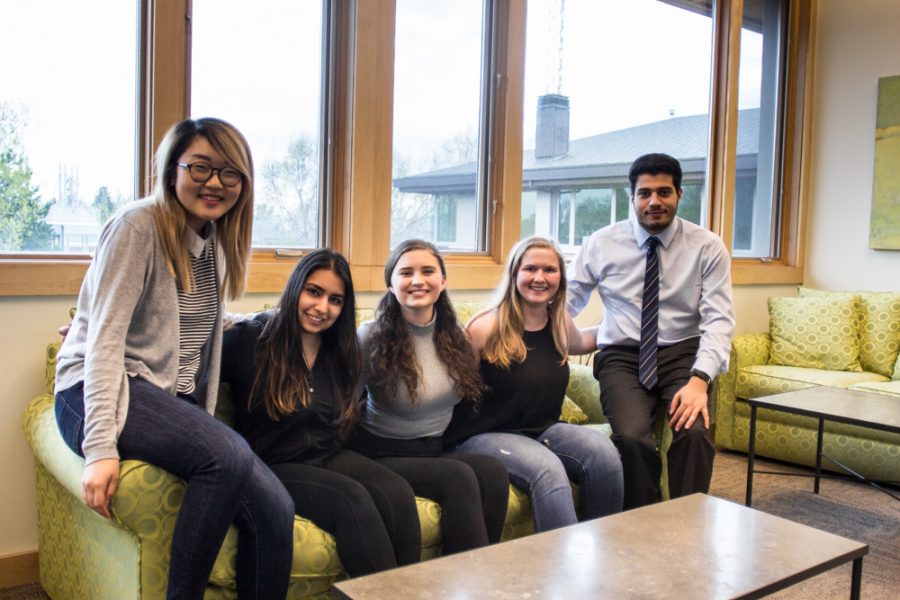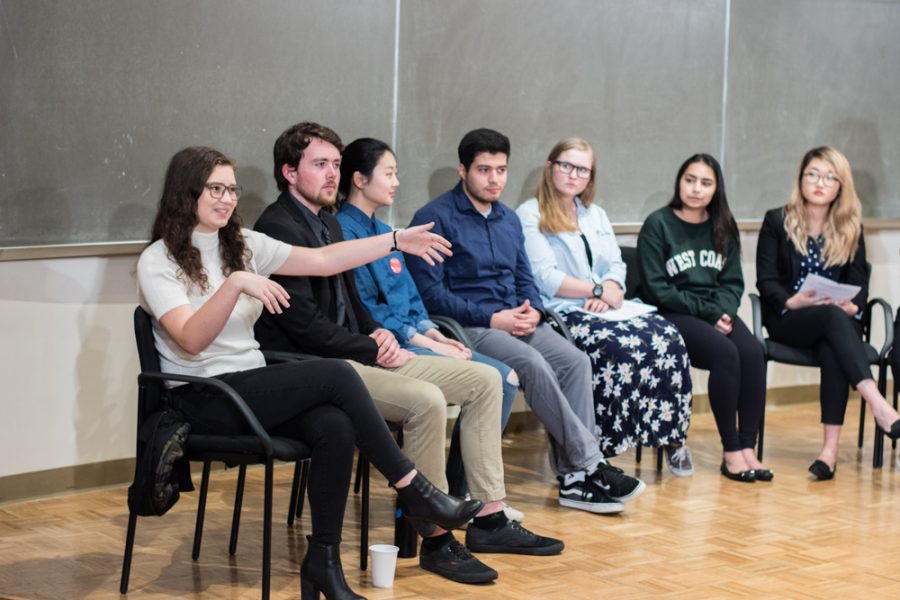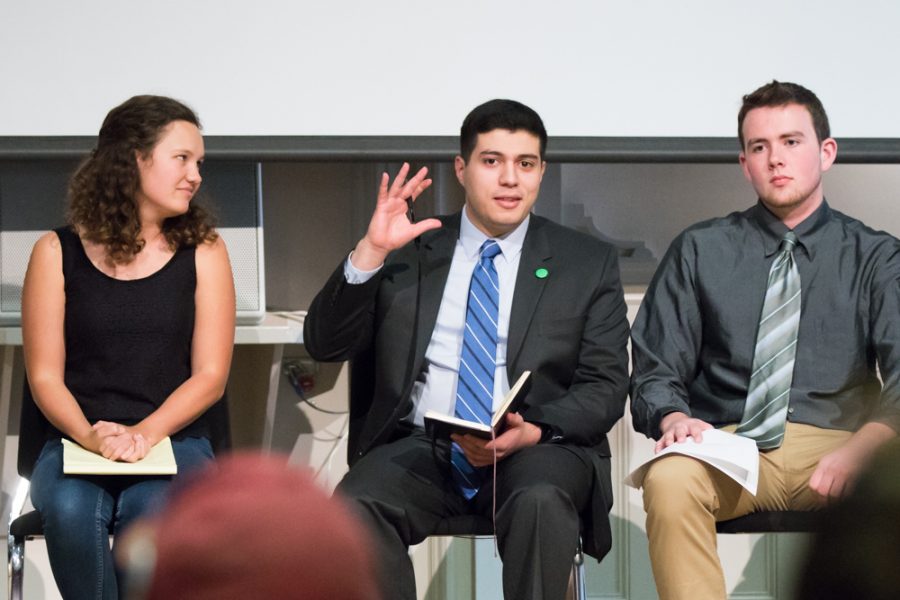
Many seniors, expecting to be able to vote in Monday’s ASWC Executive Council (EC) election, were surprised to learn that they were ineligible to do so.
Last year, large parts of the ASWC Constitution were rewritten, and the status of seniors’ voting ability remained somewhat unresolved. While some ASWC senators recall approving seniors’ ability to vote, others do not. In any case, the current by-laws being used by the ASWC Senate do not allow seniors to vote in elections for the fall of their graduation year. This detail was only noticed a few days before Monday’s elections, which had already been set up to accommodate seniors.
The day before EC elections this year, ASWC Senate held a meeting in which a motion was called to try and amend the ASWC Constitution. This amendment would have allowed members of the senior class to vote in the election.
A unanimous vote was needed to pass the measure. All but one senator voted in favor of the measure, so the motion failed; seniors were not given the ability to vote in the elections.
Amendments to ASWC’s Constitution normally require a two-thirds vote of the Senate and then a referendum of the student body in order to pass. To expedite the process, last year a clause was added to the Constitution to allow a unanimous vote of the Senate to bypass the student body’s approval. This was the process used in this situation.
In this case, ASWC Vice President and Chairman of Student Affairs senior Roman Goerss was the sole voter against the measure. He rejected the measure on constitutional grounds.
The general debate among the Senate had two basic sides. Some Senators felt that to deny seniors a vote would disenfranchise members of the graduating class, who arguably have a stake in the composition of ASWC after they leave. Others felt that because seniors won’t be represented by the new administration, it would be inappropriate for them to vote.
Senior ASWC Senator Carole Wilson believes seniors should be able to vote.
“It has been the standard of Whitman for the past five years, at least, and it is an important part of EC elections,” said Wilson. “We do not e-mail potential first-years and give them a chance to vote for the candidates. Therefore, only three fourths of the student body for next year is eligible [to vote] and I think this is highly problematic. Seniors have a vested interest in ASWC’s continued success and provide an institutional knowledge that is essential.”
Goerss, on the other hand, believes that the measure is unconstitutional because it violates the original intent of the ASWC Constitution.
“There is a special clause in the Constitution that lets the Senate change it unanimously as long as the change doesn’t contradict the intent of the existing Constitution. The proposed amendment clearly does so, as the Constitution states ‘members of ASWC who are not graduating in the current semester will be eligible to vote’,” said Goerss.
To Goerss, the ASWC Constitution is inviolable, regardless of anyone’s personal preferences.
“Even if I had voted yes, the amendment would have been unconstitutional, and I don’t believe the Senate should or can violate the Constitution which the student body ratified, no matter how much we might all want to,” Goerss said.
Junior Senator Ellie Klein said that ASWC Senate will avoid such ambiguous situations in coming years.
“I believe that [the Senate] will look more closely and regularly at our Constitution in the future to ensure that this type of untimely confusion does not happen,” said Klein.




